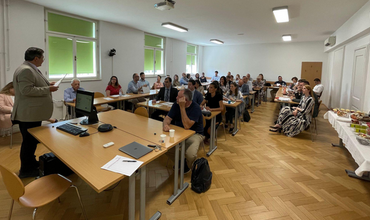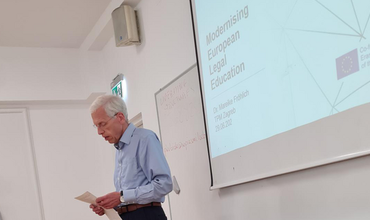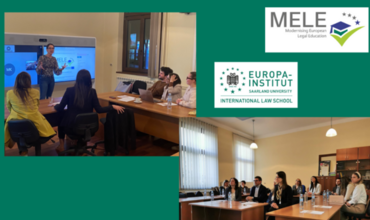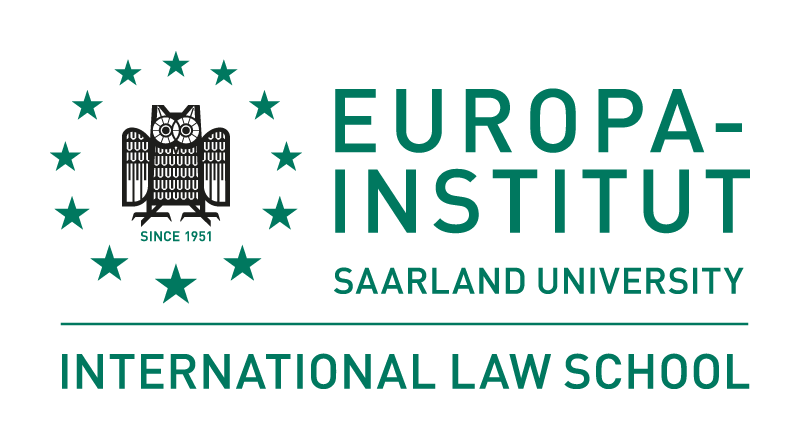
The European Union supports the project "Modernising European Legal Education" (MELE) of the Europa-Institut with 450.000€ over a period of 3 years
Together with eight other European partners, the Universities of Belgrade (Serbia), Zagreb (Croatia), Skopje (Northern Macedonia), Cadiz (Spain), Vilnius (Lithuania), Groningen (Netherlands), Regent's University London (United Kingdom) and the South Eastern European Law School Network, the project "Modernising European Legal Education" from Prof. Dr. Thomas Giegerich, Director of the Europa-Institut will be awarded the grant by the European Union. "We are very pleased that the selection committee found our project application and the idea behind it to be innovative and eligible for funding. Together with our partners, we look forward to the exciting and important work in the next three years", says Prof. Dr. Thomas Giegerich, head of the project.
The aim of the project is to prepare young law students for the European job market and to equip them with the necessary interdisciplinary and fundamental tools for a digital and diverse future.
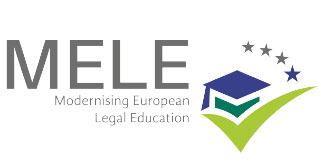
Project Website: mele-erasmus.eu
TPM Zagreb (29 - 30 June 2023)
The last transnational project meeting was held in Zagreb from 29 to 30 June 2023. The meeting was used as an opportunity to expand knowledge and project findings on innovative teaching methods in legal education. A total of 23 participants was present during the two days. The meeting started off with two presentations of distinguished guests - Przemyslaw Kubiak from the University of Lodz and Polish Law Clinics Foundation and Paul McKeown from Northumbria University and the European Network for Clinical Legal Education. Both speakers addressed the importance of teaching law students practical legal skills, focusing specifically on the value and importance of clinical legal education. Two presentations were followed by the demonstration of the results of the IO3 - Method Toolbox. All subgroups (case studies, simulations, clinical legal education, moot courts) are in the final stage and are ready to be published on the MELE website soon. The Friday morning session was used to address the issues of project management, focusing on final reporting and further project activities.
MPE Zagreb (29 June 2023)
The multiplier event was organized as an afternoon session following the TPM on 29 June 2023. In order to present the results of the MELE project, but also to explore further the topic of practical legal education, a multiplier event was organized as a roundtable "Theory and practice: The importance of cooperation in education of future lawyers". Aside from the project partners, a total of 32 participants (1 international and 31 domestic participants) took part in the event (representatives of the Supreme Court, High Commercial Court, Commercial Court in Zagreb, Municipal Court in Zagreb, attorneys, in-house counsels, NGOs and academia). The MPE took off with Prof. Dr. Giegerich's and Dr. Mareike Fröhlich's explanation of the main goals and outputs of the project, followed by the overview of practical courses in University of Zagreb Faculty of Law (presented by Prof. Opačić) and a moderated discussion. During the roundtable, the participants pointed out that:
- there are many opportunities to engage in practical legal education these days (more than ever)
- there is still some space to expand the cooperation, e.g. by jointly engaging in different simulations or by organizing structured internships
- while students do have better soft skills, they lack confidence and sometimes initiative, so they should be encouraged to freely express their own opinion
- practical legal education should start in the first year, not later in the studies
- the understanding of the business sector and financial background should not be underestimated in the curriculum
- in order to acquire soft skills, the focus should not be only on law, but on the wider social and economic background, desirably exposing students to the knowledge of other disciplines (sociology, social psychology etc.)
- teachers should also be trained in pedagogy and andragogy
- perhaps a smaller number of (motivated) students is needed to facilitate the process of acquiring practical legal skills
- law faculties should not only be oriented towards practice, but also towards the community and the users of the legal system
Dissemination activity Belgrade on (10 - 11 May 2023)
On 10 and 11 May 2023 a seminar for PhD students was held at the Faculty of Law, University of Belgrade as a dissemination activity within the MELE project. It was held in a hybrid form and organized by the Institute for Legal and Social Sciences and Centre for Sociological and Legal Research of the Faculty of Law, University of Belgrade. 20 PhD candidates from 7 different countries participated in this two-day event. The Colloquium comprised workshops intended for PhD students with the aim to introduce them to some helpful administrative and technical tools achieved by the MELE project to enhance their productivity and work pace.
Marija Vlajković and Valerija Dabetić from the University of Belgrade Team presented the functioning of the MELE project through intellectual outputs that were finalized in the previous three years within the project duration with the main aim to modernize teaching methods in legal education. They explained the importance of Survey on teaching transversal competences in legal studies for mapping where exactly the progress in modernizing legal education is needed. Marija and Valerija announced that the online course for academic skills in European and international context, that was part of the intellectual output 2, is envisaged to be part of the University of Belgrade Moodle Platform so our students could also benefit directly from the online courses. Finally, Marija and Valerija briefly presented their research paper titled “Building Transversal Skills and Competences in Legal Education”, that is to be a part of the intellectual output 4 - a publication of articles “Law and beyond” which explains the links of cross-cutting topics for legal teaching and research and opens up new research fields for legal scholars.
The presentation was concluded with the message that projects such as MELE, with the aim to expand legal knowledge and open legal education to modern inter-disciplinary approach and engage both lecturers and students, to create a more productive learning environment, are a necessity in the legal academic studies of the 21st century.
Project duration: 3 years, 01/09/2020 till 31/08/2023
Grant program: Eramus+, KA203 Strategic Partnership for Higher Education
Grant amount: 423.388,00€
Consortium Members:
- University of Belgrade, Faculty of Law (Serbia)
- University of Zagreb, Faculty of Law (Croatia),
- Ss. Cyril and Methodius University in Skopje, Iustinianus Primus Faculty of Law (North Macedonia),
- University of Cadiz, Faculty of Law (Spain),
- Mykolas Romeris University in Vilnius, Faculty of Law (Lithuania),
- University of Groningen, Campus Fryslân (Netherlands),
- Regent’s University London (United Kingdom) and the
- South Eastern European Law School Network, SEELS (North Macedonia)
Associated partner: The European Network for Clinical Legal Education (ENCLE)
The consortium partners of MELE intend to enhance the transversal competences and academic skills of students by improving the teaching skills of academic staff among all consortium partners. Moreover, the project’s objective is also to raise awareness of cross-cutting topics, like gender issues, Green deal and climate change, digitalisation and multilevel governance, for legal studies.
Effective education and professional training systems are the cornerstones of equitable, open and democratic societies and of sustainable growth and employment. In this context, it is increasingly questioned whether education and teaching methods, especially in the field of legal studies, are still up to date to meet the profession’s needs. Currently, students are trained in very traditional methods, exclusively focusing on legal knowledge and not beyond it. This despite the fact that evidence demonstrates that an increasing number of graduates will most likely not work in traditional legal professions. Hence, additional competences and skills are required to ensure high employability of law graduates. Such needs have been triggered by the globalisation of the legal profession and the increased need for understanding of cross-cutting subjects, e.g multilevel governance, Green Deal and climate change, as well as global digitalisation of societies and automatisation of legal procedures. Furthermore, the working environment of nationally trained ‘traditional’ lawyers will be undergoing considerable changes in future, varies from increased numbers of claims and computerised procedures to complex international cases, which include multiple jurisdictions. These changes in the traditional legal labour market require revisiting of legal education approaches and teaching methods to ensure that graduates are prepared for such emerging challenges. The delivery of legal education requires a holistic engagement with requirements and needs of today’s global job market.
To achieve these goals MELE plans four intellectual outputs:
- a survey on teaching transversal competences in legal studies (O1) to analyse the current state including transversal competences in the existing teaching and learning and to serve as a basis for the development of the intellectual output “Method tool box” (O3);
- an online course for academic skills in European and international context (O2) which will be used for teaching students and PhD candidates the necessary skills for scientific research and work focusing on a European and international background;
- a method tool box for new and innovative teaching methods and transversal competences (O3) which compiles handouts and samples of new and innovative teaching methods, like legal clinics and moot scenarios, that improve the teaching skills of academic staff. This toolbox will provide teaching staff with necessary teachings skills for transversal competences whereby students skill will be improved and their employability strengthened.
- a publication/collection of articles “Law and beyond” which explains the links of cross-cutting topics for legal teaching and research (O4) and opens up new research fields for legal scholars
MELE will be supported by the implementation of four LTT activities.
- The workshop for the online course (LTT1) will train teaching staff in the necessary basics for designing an attractive, didactically based and innovative online course. Moreover, it provides possibilities to discuss the structure of this course.
- The “train the trainers” event (LTT2) will give an overview of relevant transversal competences and their application in legal teaching. Additionally, it will make teaching staff familiar with various innovative teaching methods that can be integrated in the method tool box.
- The learnt methods will be tested in the summer school (LTT3) so that the participating students will be exposed and trained in transversal competences.
- Finally, cross-cutting topics will be discussed in the legal context, including a publication, at the workshop “Cross-cutting topics in legal studies” (LTT4).
All these activities will be accompanied by dissemination activities by all consortium partners and four multiplier events that will present the outputs to other academic institutions, stakeholders in the education sector and other interested parties.
MELE targets teaching staff, especially young academics, students and PhD candidates of all consortium partners. The project consortium consists of nine different partners across Europe with expertise in the relevant fields. The trans-European composition guarantees a broad horizon, multiple approaches to teaching and different legal backgrounds as well as diverse expertise.
MELE creates a forum and network for exchanging and enhancing ideas, experiences and best practices for innovative teaching and research, especially addressing transversal competences and cross-cutting topics, for all consortium partners and beyond.
Detailed information will follow shortly.
